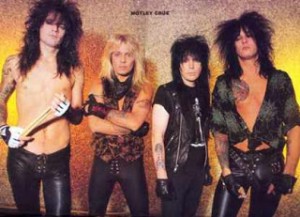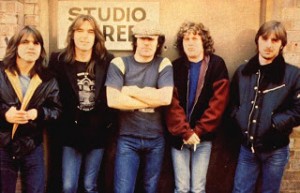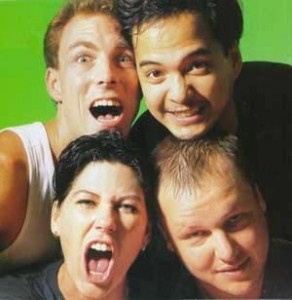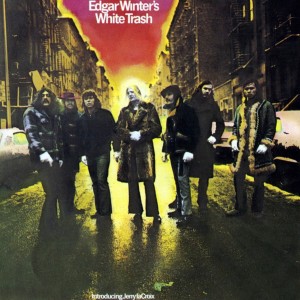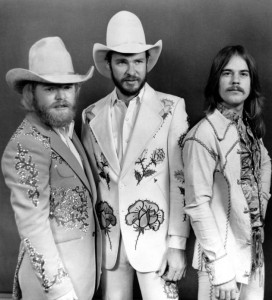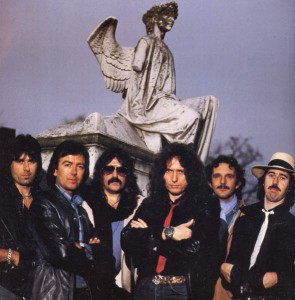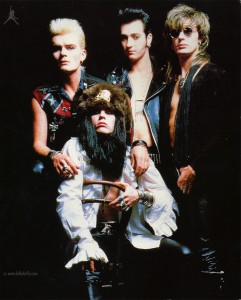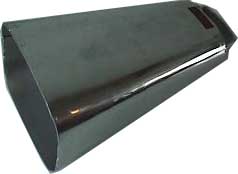It’s fair to say the past week or so of my listening (and writing) has been derailed somewhat by the passing of David Bowie. There’s been (and is) so much online about the mawkishness/validity of feeling bereaved over the death of Bowie/famous people in general and there’s no need to add to that.
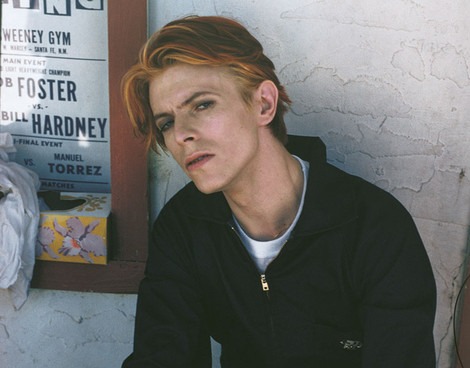
All I can say is I used to go on about Bowie almost as much as I do now, and, true to my obituary elsewhere on this site, whatever my mood since his passing, one or another of his songs has suited it perfectly.
Listening to Bowie now is inevitably sadder than it used to be. His work has always been notable for its artificial quality, the adoption of various personae etc, but, unless you don’t believe in being emotionally engaged/moved by works of fiction there’s no contradiction in being affected by his apparently non-personal songs, especially given his brilliantly written lyrics. Anyway, here’s the playlist for today and the past week or so…
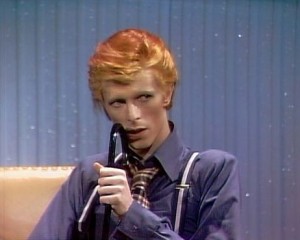 The Gouster Sessions 1974 (fragment) – This is so frustrating, tantalising and great; the song fragments; Shilling the Rubes, I Am A Lazer, After Today and the rough version of Young Americans come from what is currently my favourite Bowie period and the recording has just a little more grit than the finished album. Bowie and his band sound on top form and the bits of studio banter sound amazingly relaxed and fun given Bowie’s apparent drug intake and exhaustion during that time. I wish the full sessions would turn up and be released.
The Gouster Sessions 1974 (fragment) – This is so frustrating, tantalising and great; the song fragments; Shilling the Rubes, I Am A Lazer, After Today and the rough version of Young Americans come from what is currently my favourite Bowie period and the recording has just a little more grit than the finished album. Bowie and his band sound on top form and the bits of studio banter sound amazingly relaxed and fun given Bowie’s apparent drug intake and exhaustion during that time. I wish the full sessions would turn up and be released.
We Are The Dead (from Diamond Dogs, 1974) – Not morbid humour on my part. I’ve loved this song 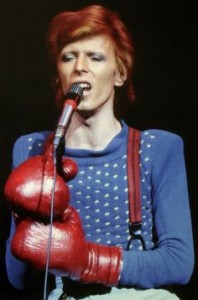 (and Diamond Dogs in general) for years (its only fairly recently been supplanted as my favourite Bowie album by Young Americans) and I’m not sure that he ever sang a song better than this. The part in the first verse where he sings ‘I looked at you and wondered if you saw things my way’ over the ominous churchy organ part (so to speak) is to me one of the greatest moments in all Bowie-dom. Hugely atmospheric, perfectly articulated and chilling/moving/ominous. For years I thought the chorus (or semi-lack thereof) let the song down, but I’m not so sure now.
(and Diamond Dogs in general) for years (its only fairly recently been supplanted as my favourite Bowie album by Young Americans) and I’m not sure that he ever sang a song better than this. The part in the first verse where he sings ‘I looked at you and wondered if you saw things my way’ over the ominous churchy organ part (so to speak) is to me one of the greatest moments in all Bowie-dom. Hugely atmospheric, perfectly articulated and chilling/moving/ominous. For years I thought the chorus (or semi-lack thereof) let the song down, but I’m not so sure now.
Big Brother (from Diamond Dogs, 1974) – Surely one of the most dodgy and creepy anthemic songs ever written, Bowie sings it like he really does want someone to fool us/shame us etc. What a great chorus, when he finally hits the high ‘oooh’s (no less lame way of putting it) in the last choruses it becomes uplifting like stadium music is supposed to be; even if the stadium he seems to be evoking is in Nuremberg.
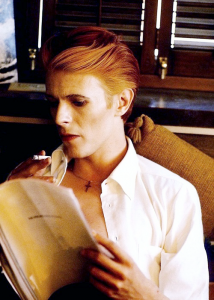 Word on a Wing (from Station to Station, 1976) – Speaking of ideologically dubious Bowie material, Station to Station must be one of the creepiest albums ever recorded by a mainstream pop artist; not least because its melange of decadent European culture, emotional withdrawal and exhaustion and overtones of religious and magical yearning are imbued with a dark romanticism. Word on a Wing is just beautiful and weary though.
Word on a Wing (from Station to Station, 1976) – Speaking of ideologically dubious Bowie material, Station to Station must be one of the creepiest albums ever recorded by a mainstream pop artist; not least because its melange of decadent European culture, emotional withdrawal and exhaustion and overtones of religious and magical yearning are imbued with a dark romanticism. Word on a Wing is just beautiful and weary though.
Sound & Vision (from Low 1977) Bowie at his most withdrawn and sombre still managed to be musically adventurous as well as writing a bona fide catchy pop song; not many people do that.
The Buddha of Suburbia (from the Buddha of Suburbia soundtrack, 1995) – On the whole, Bowie 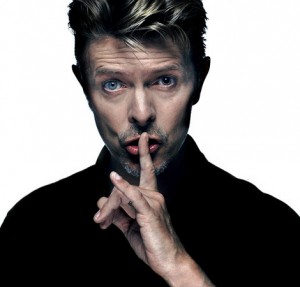 seems not to have been (in his music at least, but see below) an especially nostalgic person. But writing the music for the TV adaptation of Hanif Kureishi’s 70’s-set drama allowed him to look at his early work as others saw it, and this breezy yet yearning song is extremely moving, if you’re me.
seems not to have been (in his music at least, but see below) an especially nostalgic person. But writing the music for the TV adaptation of Hanif Kureishi’s 70’s-set drama allowed him to look at his early work as others saw it, and this breezy yet yearning song is extremely moving, if you’re me.
Drive In Saturday (from Aladdin Sane, 1973) – Despite what I just wrote above, Bowie’s early work is often nostalgic, but not so much for his own past as for the recent past as seen from the future; the retro-futurism of songs like The Prettiest Star, Drive In Saturday was similar to the ’50s in space’ atmosphere projected by early Roxy Music and seems to have been the raison d’etre for the covers album Pin Ups (1973). Drive In Saturday has a really nice tune.
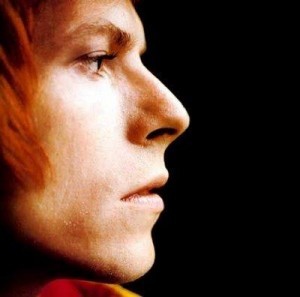 Lady Stardust (from Ziggy Stardust & the Spiders from Mars, 1972) – A beautiful, brilliantly produced and performed song that exemplifies everything glam-era Bowie stood for; sexy, glamorous, gender-ambiguous and an immaculate pop song too. Sigh.
Lady Stardust (from Ziggy Stardust & the Spiders from Mars, 1972) – A beautiful, brilliantly produced and performed song that exemplifies everything glam-era Bowie stood for; sexy, glamorous, gender-ambiguous and an immaculate pop song too. Sigh.

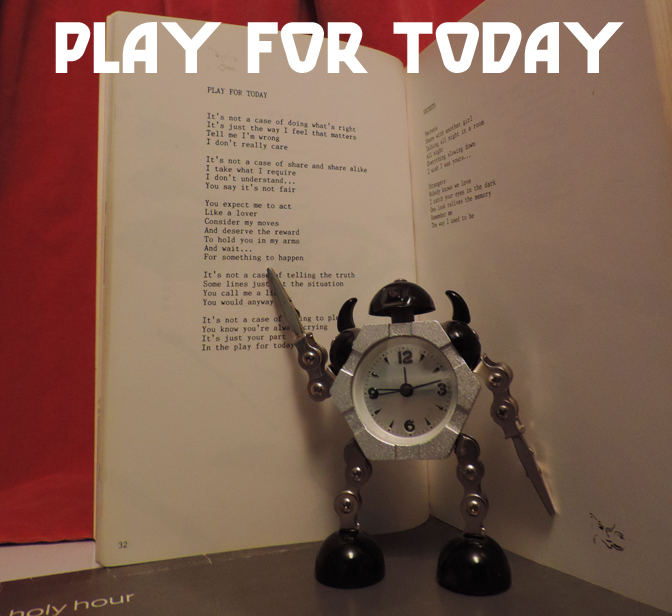
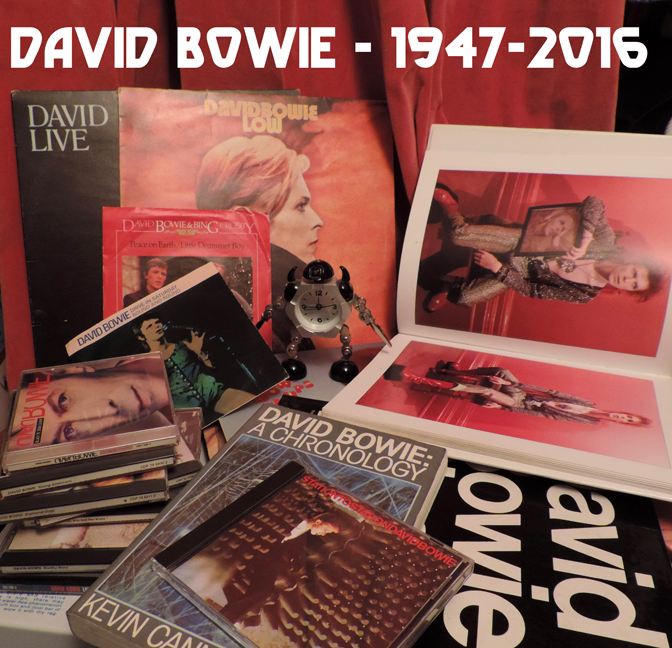

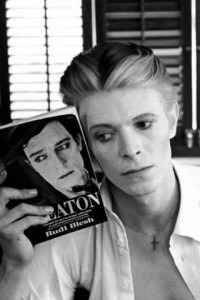
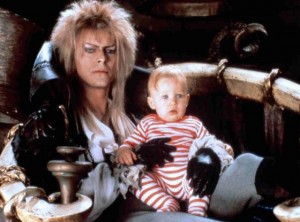 I’ve been listening to David Bowie for more than half of my life, but like most people of my generation, I’ve been very aware of him for much longer than that.
I’ve been listening to David Bowie for more than half of my life, but like most people of my generation, I’ve been very aware of him for much longer than that.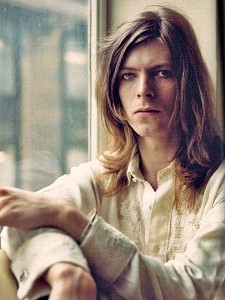 There were two (as I remember) more or less simultaneous but separate things that led me in my late teens to Bowie’s music; a book about Lou Reed (I was already a big Velvet Underground fan) which led me onto Queen Bitch and therefore Hunky Dory (for a long time my favourite album) and seeing The Man Who Fell To Earth on TV and therefore listening to Low, which was in my mother’s record collection; and loving it.
There were two (as I remember) more or less simultaneous but separate things that led me in my late teens to Bowie’s music; a book about Lou Reed (I was already a big Velvet Underground fan) which led me onto Queen Bitch and therefore Hunky Dory (for a long time my favourite album) and seeing The Man Who Fell To Earth on TV and therefore listening to Low, which was in my mother’s record collection; and loving it.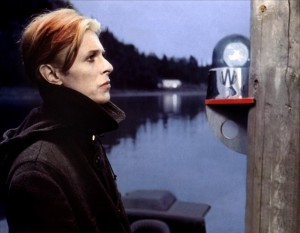

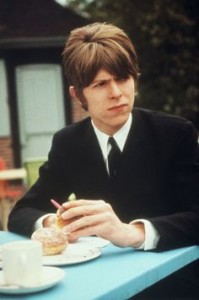
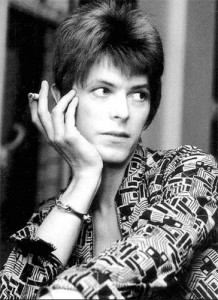
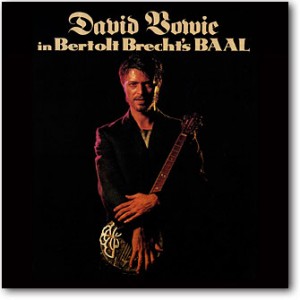


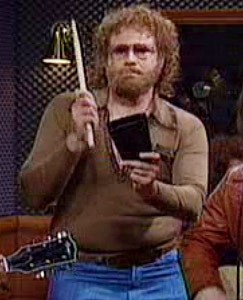
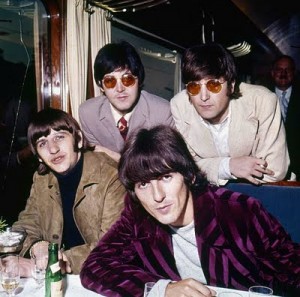 Car (1966), which perhaps surprisingly prefigures the genre with its funky soul influence. The Spencer Davis Group’s equally soulful Gimme Some Lovin’ (1966) also features possible cowbell* although to my ears it sounds more like a tambourine. *see note on Honky Tonk Woman below
Car (1966), which perhaps surprisingly prefigures the genre with its funky soul influence. The Spencer Davis Group’s equally soulful Gimme Some Lovin’ (1966) also features possible cowbell* although to my ears it sounds more like a tambourine. *see note on Honky Tonk Woman below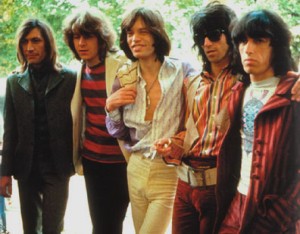 and from then on the song establishes cowbell rock; a rocking, yet laidback beat that holds everything else together. It was to prove hugely influential on the rock of the 70s and every revival thereof up until the present day. Interestingly (this is the part alluded to in the introductory note; thanks anonymous person), it is most likely erstwhile Spencer Davis Group producer Jimmy Miller, rather than the undoubtedly brilliant Charlie Watts, who plays the cowbell.
and from then on the song establishes cowbell rock; a rocking, yet laidback beat that holds everything else together. It was to prove hugely influential on the rock of the 70s and every revival thereof up until the present day. Interestingly (this is the part alluded to in the introductory note; thanks anonymous person), it is most likely erstwhile Spencer Davis Group producer Jimmy Miller, rather than the undoubtedly brilliant Charlie Watts, who plays the cowbell.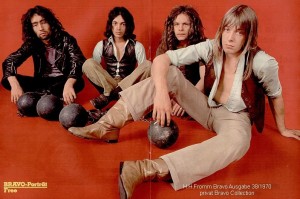 Free – All Right Now (1970) – picks up where Honky Tonk Women left off, with even bigger gaps in the riff; more room for cowbell. Most of Free’s early work should really be in the ‘implied cowbell’ list below
Free – All Right Now (1970) – picks up where Honky Tonk Women left off, with even bigger gaps in the riff; more room for cowbell. Most of Free’s early work should really be in the ‘implied cowbell’ list below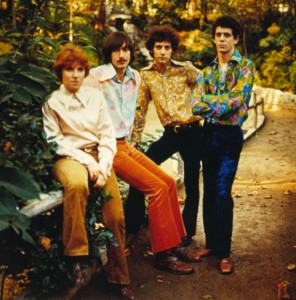 any) is not very audible but this should be a cowbell classic based on the riff alone (more such nonsense below).
any) is not very audible but this should be a cowbell classic based on the riff alone (more such nonsense below).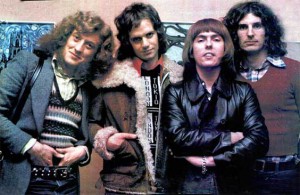 Slade – The Bangin’ Man (1974) – a tongue in cheek, slightly sad song, seemingly alluding to the memory problems the great Don Powell suffered when recovering from a horrendous car crash; but his drum/cowbell playing here is peerless.
Slade – The Bangin’ Man (1974) – a tongue in cheek, slightly sad song, seemingly alluding to the memory problems the great Don Powell suffered when recovering from a horrendous car crash; but his drum/cowbell playing here is peerless.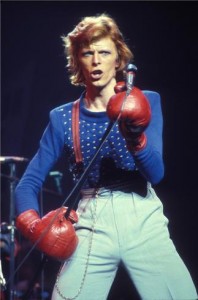 perfect backdrop for some classic cowbell courtesy (I presume) of the great Aynsley Dunbar. Interestingly, Bowie’s flirtation with cowbell rock outlasted his glam period; check out the Young Americans-era outtake I’m Divine for some classic cowbell with more of a funk flavour.
perfect backdrop for some classic cowbell courtesy (I presume) of the great Aynsley Dunbar. Interestingly, Bowie’s flirtation with cowbell rock outlasted his glam period; check out the Young Americans-era outtake I’m Divine for some classic cowbell with more of a funk flavour.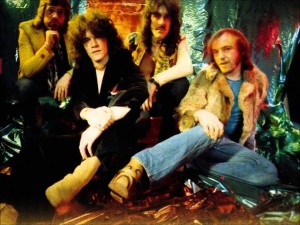 Nazareth – Hair of the Dog (1975) – basically a compendium of everything cheesy-but-good about mid-70s hard rock; and they came from Dunfermline!
Nazareth – Hair of the Dog (1975) – basically a compendium of everything cheesy-but-good about mid-70s hard rock; and they came from Dunfermline!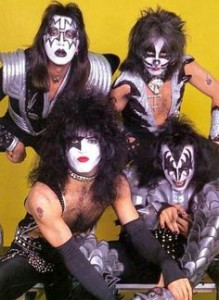 cowbell in 1975/6 because it’s all over the classic Rock & Roll Over album (released November 1976), giving it a looser, warmer feel than the also great but clinically orchestrated Destroyer (released March 1976, shockingly; When they were good, they were productive!)
cowbell in 1975/6 because it’s all over the classic Rock & Roll Over album (released November 1976), giving it a looser, warmer feel than the also great but clinically orchestrated Destroyer (released March 1976, shockingly; When they were good, they were productive!)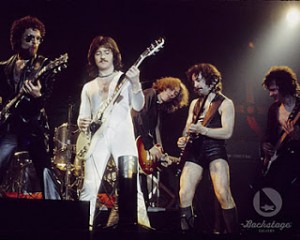
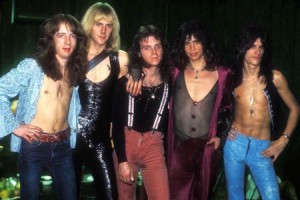 but this slow & dirty-sounding masterpiece has the real thing.
but this slow & dirty-sounding masterpiece has the real thing.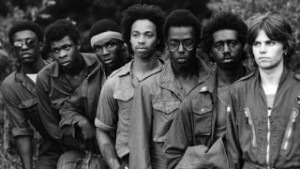 War – Low Rider (1975) – somewhat out of genre being funk, but this song belongs in any discussion of the cowbell in popular music. I’m sure Funkadelic must have used it too, but nothing comes to mind so I’ll leave that for now…
War – Low Rider (1975) – somewhat out of genre being funk, but this song belongs in any discussion of the cowbell in popular music. I’m sure Funkadelic must have used it too, but nothing comes to mind so I’ll leave that for now…